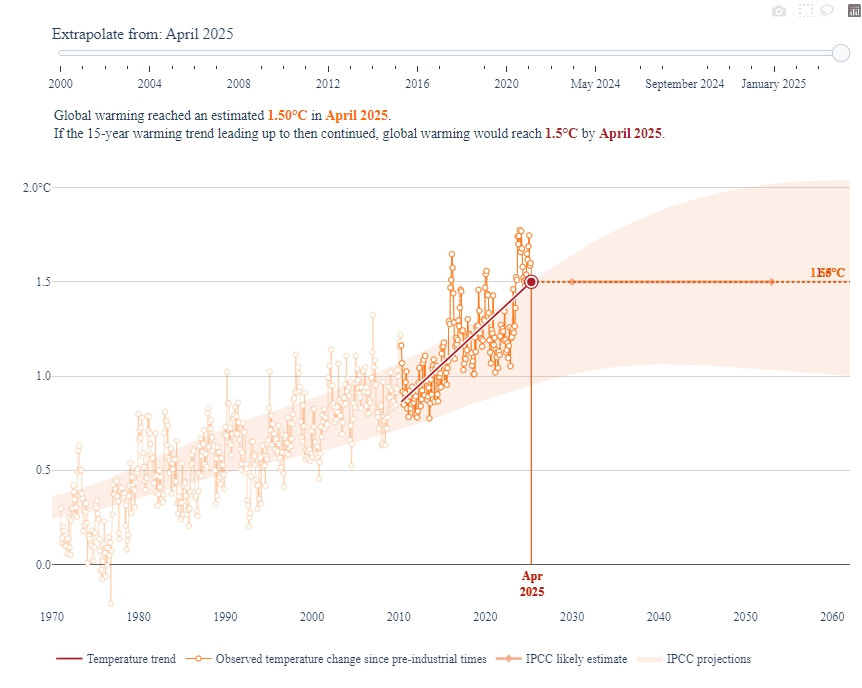🚨🌍🌡📈
Using a 15-year trend, we have now officially passed 1.5°C of global warming.
All recent La Niña months are above the trendline.
Extrapolating this linear trend, we'll hit +1.75°C by 2031 and +2.0°C by 2037.
⬇️
Using a 15-year trend, we have now officially passed 1.5°C of global warming.
All recent La Niña months are above the trendline.
Extrapolating this linear trend, we'll hit +1.75°C by 2031 and +2.0°C by 2037.
⬇️

Comments
There's very little reason to assume that the past 30-year trend will continue linearly.
But even then, passing 1.5°C would be only four years away.
H/t @tugberksamur.bsky.social
@ecmwf.int
For the rest of us (who don't play around woth the source code ;-) , this is what the 30yr linear trend looked like in 2015 (1.5°C Paris Accord) - pic1.
Compare that with current 30yr linear trend as of Apr. 2025 - pic2
https://apps.climate.copernicus.eu/global-temperature-trend-monitor/
Why, you ask?
Because of emissions since 2015 and observed W/m2 radiative forcing aka acceleration 🏎️ Brick wall 🧱 , no 🏒
https://www.newscientist.com/article/2464408-air-monitoring-station-records-biggest-ever-jump-in-atmospheric-co2/
https://bsky.app/profile/nonviolence.bsky.social/post/3lojeqdhgz22c
What I meant was that even without coding the acceleration is quite obvious for everyone using the copernicus tool - even with their linear 30yr trends, simply compare the results for 2000, 2015 and 2025...
No contradiction with Leon!
https://www.birds.cornell.edu/home/bring-birds-back/
Odds are fair I'll be dead in 10-15 years, and though I weep for the world, I'm glad I have no offspring.
The Anthropocene extinction event has been ongoing for a couple of generations. I will leave the world saddened by what we've done to it.
So yes, it is getting way hotter. I don't need a graph to tell me that.
......Wait what? DENIAL IN ALL THE WORLD?!
Frustrating.
I’m certain that with policies and human drive we can get to 2.0C much quicker.
Dreadful, absolutely dreadful!
Without this, I wouldn't make strong strong statements on surface air temperature trends.
And that adding more heat faster increases temperatures faster
And how much of a peak the end is is quite uncertain.
ENSO was neutral/negative, solar cycle 25 peaked.